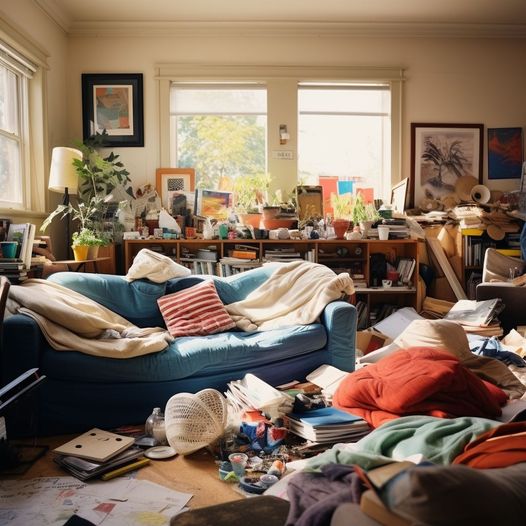ADVERTISEMENT
These tools enable you to effectively categorize and separate your belongings, making it easier to find and access them when needed. For instance, storing kitchen utensils in labeled bins makes it effortless to locate and retrieve them while cooking. Research suggests that using such tools promotes a sense of order and reduces stress levels by creating a visually appealing and organized space. Furthermore, baskets and bins serve as a visual cue to limit the number of items you keep, preventing future clutter. Overall, incorporating organizing tools into your decluttering process brings efficiency and long-term success to maintaining an organized home.
5. Donate or sell items that are still in good condition.
Not only does it help create more space and organization, but it also allows you to give back to your community. By donating these items to local charities or non-profit organizations, you can help those in need who may not have the means to purchase them new. Similarly, selling these items through platforms like online marketplaces or garage sales not only generates some extra income but also gives these items a second life with someone who will truly appreciate them. This sustainable approach not only benefits you but also the environment by reducing waste and promoting recycling.
6. Have a designated spot for incoming mail and paperwork.
This allows you to keep these items organized and prevents them from creating unnecessary piles of clutter around the house. One effective way to implement this is by having a mail sorter or a file organizer where you can categorize and store important documents. For example, you can have separate sections for bills, correspondence, and other essential paperwork. By having a designated spot for these items, you can easily locate them when needed and avoid the frustration of searching through a mess of papers.
7. Implement a "one-in-one-out" rule for new purchases.
This rule involves getting rid of an existing item whenever a new one is brought into the home. By doing so, the accumulation of unnecessary belongings is avoided, preventing clutter from building up over time. Research has shown that clutter can lead to increased stress levels and decreased productivity. For example, a study conducted at Princeton University found that visual clutter in a person's surroundings competes for attention and limits the brain's ability to focus. Therefore, implementing a "one-in-one-out" rule helps to promote a more organized and stress-free living space.
ADVERTISEMENT
